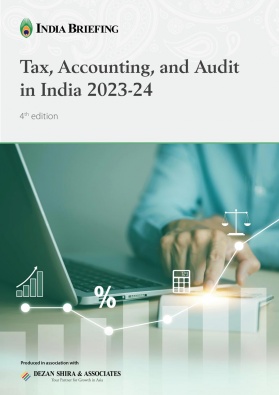India-Australia Trade Negotiations for a CECA: What We Know So Far
Following the interim trade pact between India and Australia, the two countries are embarked on serious negotiations to a fuller CECA trade agreement. This will include some tough negotiations on sticky subjects like greater market access for India’s protectionist segments like wine and agriculture products. Round four of the bilateral trade talks took place in July 2023.
India and Australia are continuing the momentum over free trade negotiations, following the interim trade pact coming into force end of 2022. Seeking to reap further dividends, the two countries appear to be on the fast lane to conclude a Comprehensive Economic Cooperation Agreement (CECA) by December 2023. This was confirmed during Prime Minister Narendra Modi’s visit to Australia end of May as he and his counterpart, Anthony Albanese, expressed their commitment to the trade negotiations.
Below we brief on some of the areas under the CECA framework to enhance bilateral trade and market access provisions. Since these trade discussions are a negotiation, limited information is often released to the media to serve specific purposes.
India-Australia CECA negotiations
According to a senior government official, India and Australia have mutually identified 15 new areas for negotiations under their comprehensive free trade agreement. These areas include collaboration in space, mining, and sports. This marks the first time that these segments will be included in the trade pact currently being negotiated by India.
The CECA will seek to expand on the framework of the India-Australia Economic Cooperation and Trade Agreement (ECTA). Under the interim trade pact, Australia offers India zero-duty access to its market for about 96.4 percent of exports (by value) from the day the agreement is in effect. Meanwhile, India grants Australia preferential access to over 70 percent of its tariff lines, including raw materials and intermediaries like coal, mineral ores, wines, etc.
Timeline of CECA talks
The Economic Times reported that Rajesh Agrawal, Additional Secretary in the Department of Commerce, said that following the third round of talks for the proposed CECA concluding on June 16, the next round was scheduled for July. Similarly, another report in the Hindustan Times, citing an official source, mentioned that the schedules for the third and fourth rounds of negotiations for the India-Australia CECEA were finalized for the first half of June (June 5-16) and the first half of July (July 3-14).
During the second round of discussions held in Sydney from April 17-21, the two sides engaged in exploratory talks, covering a total of 13 subjects.
Sticky subjects include Australia’s demand for greater access to India’s market for alcohol beverages and agricultural products.
Recent sector developments
Utilization of tariff concessions under ECTA
The India-Australia ECTA recorded a utilization rate of approximately 90 percent on average in the initial six months since the interim trade deal was put into action, according to an August 13 report published in the Business Standard. However, the value of exports experienced a 25 percent year-on-year decline during the same period. Indian exporters to Australia that come under labor-intensive sectors have benefitted the most from the immediate duty reductions on offer—5 percent to zero duty—in the ECTA.
Under the ECTA, 3185 tariff lines in Australia will see import duties brought down to zero; the remaining 6,500 tariff lines already attracted zero import duty. Duty elimination for 113 tariff lines (out of the 3185) will be phased out in five years, the process for which is already underway.
India’s exports to Australia contracted to US$3.65 billion in the January-June period, but this is similar to export slowdown witnessed in other markets. The tepid demand is likely due to a combination of headwinds from high inflation in Western markets to geopolitical tensions in the aftermath of Russia’s war in Ukraine and US-China de-risking. Similarly, India’s imports from Australia recorded a contraction, falling to US$7.89 billion in the six months to June from US$8.6 billion the previous year.
Mining
In the area of mining, India and Australia have formed a strategic partnership to secure the critical mineral supply chain. They will jointly invest $3 million each in five exploration projects in Australia. The objective is to enhance exploration and extraction efforts, ensuring a stable supply of critical minerals to meet India’s industrial demands and technology advancement.
Legacy Iron Ore, in collaboration with NDMC Ltd. (India’s largest iron ore company), is actively involved in exploring and developing mineral projects in Western Australia, focusing on iron ore, manganese, gold, and base metals.
Further, KABIL (Khanij Bidesh India Limited) is set to make a significant investment in Australia’s rare earth sector, via a joint venture of three state-run Indian firms and the Critical Minerals Office under Australia’s Department of Industry, Science and Resources. The investment partnership reached an important milestone in March this year, according to India’s Union Minister for Coal, Mines and Parliamentary Affairs, Pralhad Joshi.
Space cooperation
Australia’s International Space Investment (ISI) initiative supports strategic space projects that foster partnerships with international space agencies. In 2022, an expansion of the initiative was announced, specifically targeting India. This expansion aims to provide support for Australian organizations to collaborate on joint space projects and establish valuable commercial connections with the Indian Space Research Organisation (ISRO) and the wider Indian space sector and provides grants to eligible projects.
Mutual Priority Areas identified by the Australian Space Agency through national and international consultation sessions can be accessed here. They include cross-cutting technology areas like advanced manufacturing, artificial intelligence (AI), applied space medicine and life sciences, cybersecurity, and platform-based architecture; national civil space priority areas like Earth observation, leapfrog R&D (ASMLS), space situational awareness and debris monitoring, and position, navigation, and timing; and cross-cutting services like exploration services and science services.
Applications under this ISI initiative closed June 27, 2023, and beneficiaries will be announced September-October this year. Under the tentative timeline, the projects are to end by March 2026. The International Space Investment India Projects (ISI India Projects) grant program will grant $20.69 million in funding over four financial years (2022-23 to 2025-26).
Education and professional mobility
Other recent developments that facilitate bilateral trade include the pilot initiative called MATES (Mobility Arrangement for Talented Early-professionals Scheme) to be introduced with an annual limit of 3,000 spots applicable for a period of four years.
MATES aims to establish a fresh pathway for Indian graduates and early career professionals who possess expertise and skills in specific areas of study, allowing them to reside and work in Australia for up to two years. Graduates with student visas can apply for work without support from a sponsor for a period of eight years.
Per media reports, professionals in these areas can benefit from the migration and mobility partnership pact: renewable energy, mining, engineering, information and communication technology (ICT), AI, financial technology (FinTech), and agricultural technology (AgriTech).
Meanwhile, earlier this year, during his maiden visit to India, PM Albanese announced the Mutual Recognition of Educational Qualifications (MREQ) between the two countries, and said that Australia’s Deakin University would be the first foreign university to gain approval to establish an overseas branch campus in India.
Australia had increased its annual intake of permanent migrants to 195,000 for the financial year ending June 2023.
This article was originally published July 10, 2023. It was last updated August 17, 2023.
For more detailed insights and to discuss Australian investment opportunities in the Indian market, please schedule a conversation with Ines Liu at ines.liu@dezshira.com.
About Us
India Briefing is produced by Dezan Shira & Associates. The firm assists foreign investors throughout Asia from offices across the world, including in Delhi and Mumbai. Readers may write to india@dezshira.com for more support on doing business in India.
We also maintain offices or have alliance partners assisting foreign investors in Indonesia, Singapore, Vietnam, Philippines, Malaysia, Thailand, Italy, Germany, and the United States, in addition to practices in Bangladesh and Russia.
- Previous Article India, UAE Commence Crude Oil Trade Using Local Currency Settlement (LCS) Framework
- Next Article India Amends Mining Law to Allow Private Sector Participation in Critical Mineral Exploration









